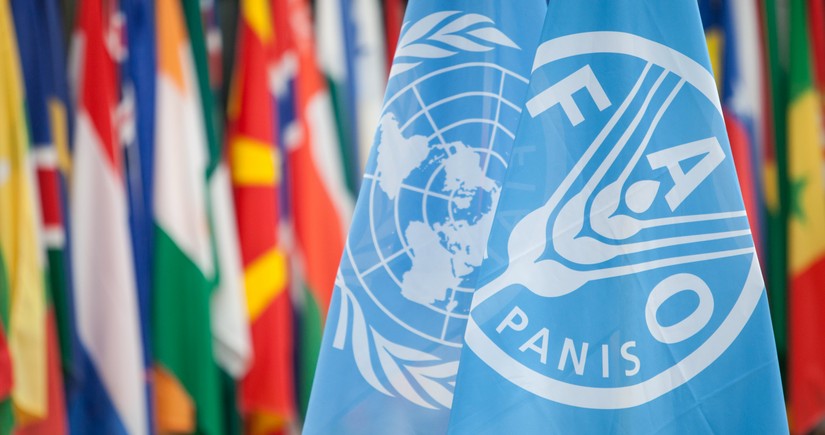FAO: Azerbaijan's ecosystem one of most biologically diverse globally
- 23 May, 2025
- 08:42

Azerbaijan is part of the Caucasus ecological region, which is considered one of the richest in biological terms and at the same time one of the most endangered ecosystems in the world, the representative of the Food and Agriculture Organization of the United Nations (FAO) in Azerbaijan Nasar Hayat said in his address on the occasion of the International Day for Biological Diversity, Report informs.
He noted that Azerbaijan, being a place of cultivation of food crops of global importance such as wheat, barley, potatoes and vegetables, and also being known for its unique ecological diversity, remains one of the most biodiverse countries in the region.
"The nature of Azerbaijan includes various landforms from high mountains to plains, rivers, swamps, lakes and an 800-kilometer coastline of the Caspian Sea. These diverse landscapes support a range of microclimates and habitats, from humid to dry subtropical zones and temperate climates. This complex mosaic of ecosystems forms the basis of Azerbaijan's rich natural heritage," Hayat noted.
He also stressed that biodiversity in Azerbaijan sometimes faces a number of challenges arising from various factors.
"There is currently a vast network of protected areas covering approximately 10.3% of the country. This network includes 10 national parks, 10 state nature reserves and 24 state nature sanctuaries, each of which plays an important role in protecting unique species and ecosystems. Within the network of protected areas, there are two model areas that demonstrate both the richness of biodiversity and the challenges of its conservation - the Shirvan and Hirkan National Parks. Located in the southeast of the country, where the climate is semi-arid, the Shirvan National Park is home to the artificial Gizilgaz reservoir. This lake plays an important role in global bird migration," he said.
"Each year, these artificial wetlands serve as a temporary stopover for tens of thousands of migrating birds. These birds - flamingos, ducks, geese and pelicans - rely specifically on Azerbaijan's wetlands as a resting place and a source of food on their migration routes. This underscores Azerbaijan's responsibility in global bird conservation. Hirkan National Park, located in the south, protects the ancient Hyrcanian forests, and this area is irreplaceable in terms of global biodiversity. Hyrcanian forests were inscribed on the UNESCO World Heritage List in 2023. The park also includes Lake Khanbulan, which is an important source of water that supports the region's biodiversity. These ecosystems protect endangered and endemic species and provide ecosystem services such as the water cycle and climate regulation. Despite all these successes, protected areas still face external pressures, limited institutional resources and management challenges. Given this, the Ministry of Ecology and Natural Resources of Azerbaijan (MENR) and the Food and Agriculture Organization of the United Nations (FAO) are implementing a project entitled "Conservation and Sustainable Use of Biodiversity: Strengthening the System of Specially Protected Natural Areas of Azerbaijan through Improved Governance and Management," he noted.
Hayat emphasized that the goal of this project, funded by the Global Environment Facility (GEF), is to increase the effectiveness of protected areas and apply a landscape approach to biodiversity conservation.
"This integrated and multi-sectoral approach aims to address the causes of environmental degradation not only within protected areas but also in their surroundings. The project brings together partners at various levels, supporting nature conservation in ecosystems, including surrounding communities and buffer zones," the statement says.
